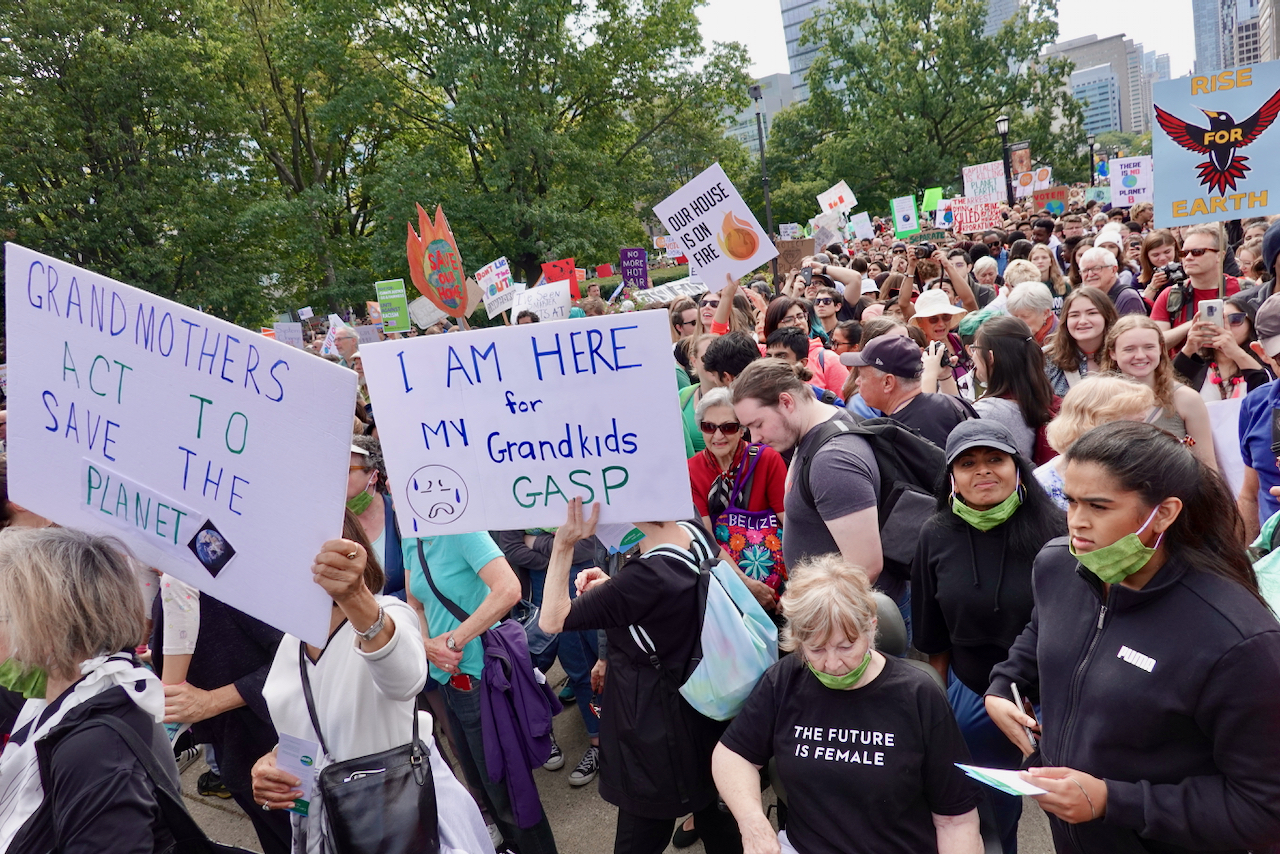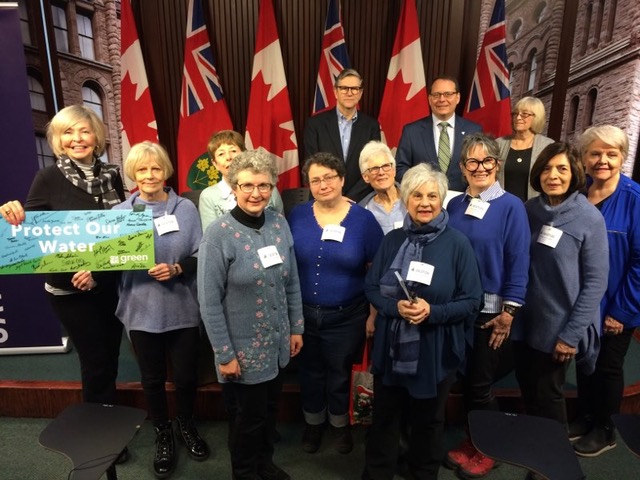Past Campaigns
Fridays for the Future
GASP participates in all Fridays for the Future rallies. We attended the March 25, 2022 Fridays for the Future RBC bank protest. Great photo of GASP member Kathleen.
Halton Hills organized a rally on Friday, October 22, 2021 to join millions around the world for this Global Day of Action in advance of the Glasgow climate summit. GASP members joined the rally.

GASP member Daisy Radigan wrote:
Thank you dear GASP members – Carole, Lorraine, Tina, Alison, Linda and Liz – for attending the ‘Walk for the World’ in Georgetown on October 22.
Your smiling faces, multiple signs, singing voices, sincere hearts and raw-raw enthusiasm helped to make the walk an ‘event’ with pizzazz!
Thanks of course to Jane Fogal who is a fearless leader for climate action!
Photos of the event are below:

Inspired by Greta, GASP has taken to the streets with students and our grandchildren on Student Strikes in Toronto, Hamilton, Burlington, Oakville and Halton Hills. We participated in Shoe Strikes in Milton, Oakville, & Burlington during the pandemic. We will continue to support the future generation.

Declaration of Municipal Climate Emergencies
GASP made a Declaration for a Climate Emergency in Milton and followed up with another presentation for staff. GASP attended the Oakville town council & budget meetings to support effective Climate Change plans. We presented Oakville and Milton Mayors with Paul Hawken’s book Drawdown.
Fight for Water
GASP joined Wellington Water Watchers and Save Our Water to present a petition of 3,500 signatures at the legislative assembly of the Ontario government. We met with Mike Schreiner, Leader of the Green Party, and were recognized in the House.

Climate Lens for Ontario Government
GASP supported the Climate Justice Youth movement with letters to Premier Ford to apply a ‘Climate Lens’ to all its decision-making. With the increasing damage done being done to environmental protections, this very active campaign continues as “Ontario Climate Watch”.
Systemic Discrimination/BLM/Defund Police/ Body Cams
We made a written presentation to the Standing Committee on Public Safety and National Security’s focus on Systemic Racism in Policing in Canada to outline the research against the use of body worn cameras as a solution to solve systemic racism within policing. https://www.ourcommons.ca/Content/Committee/432/SECU/Brief/BR10946963/br-external/GrandmothersActToSaveThePlanet-e.pdf
GASP met via zoom with Senior advisors of the Minister of Public Safety Bill Blair and presented our case against the use of body cams using current academic research and the position statements of BLM/TO.
We shared our research and concerns with other Halton organizations.
We’ve met with two Senators to urge the Senate to speak out against the use of body cameras as a strategy to solve systemic racism. As well, earlier in the year, GASP cheered on the youth along the March for Black Lives Matter (BLM) on Burlington streets. We wrote the RCMP asking them to acknowledge and address Systemic Discrimination and to build a new Social Contract of Trust with Indigenous, Black, Racialized people, LGBTQ2, and Women.
Just Recovery For all (Just Transition)
GASP sent handwritten cards to Federal and Provincial Politicians to thank them for their collaborative leadership during the early days of the pandemic and to recommend that they continue to co-operate in a nonpartisan way to address the climate crisis. We produced our own Just Recovery statement focusing on bold leadership on climate social justice. ”No business as usual.” link to statement
Climate Plans for Federal Election – Fall 2018
Teams of GASP and HEN Students interviewed candidates for all parties representing Halton on the climate crisis and carbon pricing. We worked with students on all-candidates meetings. GASP mailed handwritten personal ‘thank you cards’ to politicians with a our recommendation for an All-Party Survival Cabinet to lead Canada’s Climate Crisis.

Personal Pledges
Individual GASPs each pledged one action that would reduce their own carbon footprint. e.g. became vegetarian, planted native plants, got rid of plastic bottles, reused shopping bags, patronized ‘green ‘companies etc.
